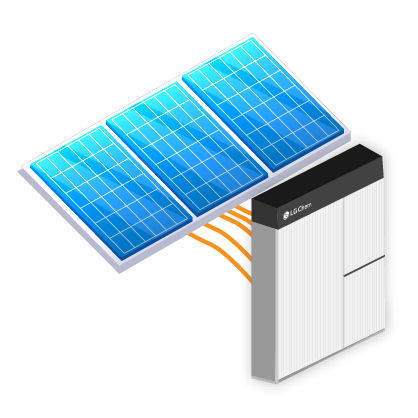Bring Your Own Battery Programs: Everything You Need to Know
When you see the acronym BYOB, you likely start thinking about backyard barbecues and good vibes. I know I do! But let’s dive into what BYOB means in the context of saving you money instead of spending it.
How does a ‘Bring Your Own Battery’ program work?
Alongside solar batteries’ increase in popularity, utility companies have begun to create incentive programs to make battery storage for your solar system more economical. The programs are very straightforward; all you need to do in order to receive the incentive is to purchase a solar battery either at the time of going solar or afterwards, and then connect your battery to your local utility’s grid.
There are two primary ways to earn money from your battery:
- The utility company pays you for your capacity, or the amount of peak or continuous power your battery can output
- They pay you for the energy that you can push onto the grid, or the amount of electricity you output
Is bringing my own battery worth it?
Energy storage prices have decreased significantly over the last several years, but without the incentive programs, there are still some cases where it doesn’t make financial sense to buy a battery, and homeowners instead are getting a battery for backup power in the event of a grid outage. Through the incentive programs, however, the payback period for a solar battery is designed to be around five years, on par with that of a rooftop solar array.
If you’re curious about bringing your own battery and the incentives available to you, we recommend that you check with your utility to see what’s available. Not all utilities have incentive programs, and not all batteries and battery manufacturers are included in those that do. Feel free to drop us a line if you’d like to connect before reaching out to your utility so that you know what to ask and what to be aware of. We’d be happy to help! Visit our website to get started on your battery project.
What’s in it for the utility companies?
- The motive behind utility companies providing a rebate or incentive for you to bring your own battery is that, in exchange, they can access your solar battery and the energy stored there. With a network of customers’ batteries to rely on, stress on the grid is reduced, and the need for the utility companies to seek out additional nonrenewable energy sources dwindles.
- Another perk for the utility companies is that you’ll demand less from the grid once you have your solar system up and running and a battery to go along with it because you’ll primarily use your own stored solar energy to satisfy your energy needs.
Other Incentives for Solar Batteries
In addition to incentives and rebates from utility companies, there is also a substantial federal solar tax credit, which is called the investment tax credit (ITC). In 2021, it grants you a 26 percent deduction in the cost of your solar energy system, with or without a battery. This deduction comes off of your federal taxes and has no cap. Typical savings are at least a few thousand dollars.
2022 is the last year to claim your 26% solar and battery tax credits. The percentage for this deduction will be dropping to 22 percent in 2023, and from 2024 onward, the residential portion of the Solar Tax Credit will be eliminated entirely. A 10% tax credit will remain for commercial, industrial, and utility scale projects only.








